Some Important AWS Security Tools
To different people, security can mean different things. For some, it’s dressing appropriately for a wedding which could make them feel safe for the evening, while others can define it as having a healthy bank account that will ensure financial security throughout their lives. In terms of Information Security, it can be explained as protecting your data and network from nefarious elements of the cyber world.
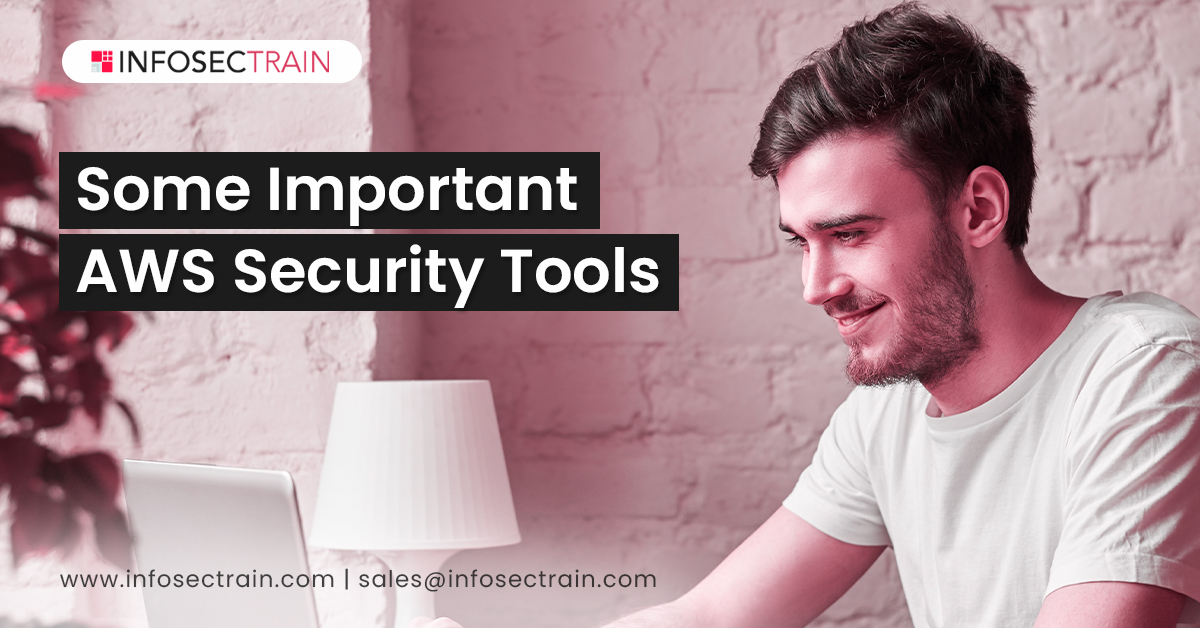
The realm of the Cloud is full of vulnerabilities and risks. They face security challenges like:
- Data Privacy
- Integrity, Non-Authentication, and Non-Repudiation
- Online attacks like a man-in-the-middle attack, Phishing, SQL injection, DDoS, Phlashing, etc.
It appears that security is as essential to any organization as it is to any individual. It is one of the most well-known encounters in the IT industry, thanks to ongoing cyber warfare. We’ve come far from the days when security was an afterthought in the business world. In the current situation, security is the guiding force behind the entire operation.
AWS Security
AWS is one of the world’s leading cloud computing platforms dominating the largest share in the Cloud market. It is significantly growing, and as it gains a vital stake, the need to protect it from breaches and vulnerabilities grows in perfect agreement. AWS offers a stable Cloud Platform because it focuses on all aspects of security.
Monitoring the networks and detecting threats, whether in the Cloud or on-premises, is crucial and vital. You’ll need to install additional software and security hardware, including appliances and sensors, to identify threats and secure your infrastructure and workloads. Then, you must configure them across all of your accounts. Then, there’s the matter of monitoring and protecting those accounts, which requires the collection and analysis of tremendous amounts of data. After that, you must accurately identify threats, prioritize warnings, and respond to them. You have to do all of this at scale while ensuring that you don’t interrupt your company or limit your cloud versatility. Previously, all of this demanded a great deal of knowledge, much more time, and a large sum of money upfront. Now, you need a simpler, smarter, and more cost-effective method of safeguarding your AWS accounts and workloads. We have introduced the five most important AWS security tools.
AWS Security Tools
1. AWS WAF: 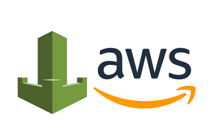 The primary function of an AWS WAF, which stands for Web Application Firewall, is to track HTTP and HTTPS requests forwarded to Amazon CloudFront, Application Load Balancer (ALB), or Amazon API Gateway. It also allows you to control access to your content by making use of the IP address from which the request originated. It will also authorize or disallow any web request based on your preferences and regulations. If the request is allowed, it provides access and responds with the requested content otherwise it responds with a 403 status code i.e. Forbidden access.
The primary function of an AWS WAF, which stands for Web Application Firewall, is to track HTTP and HTTPS requests forwarded to Amazon CloudFront, Application Load Balancer (ALB), or Amazon API Gateway. It also allows you to control access to your content by making use of the IP address from which the request originated. It will also authorize or disallow any web request based on your preferences and regulations. If the request is allowed, it provides access and responds with the requested content otherwise it responds with a 403 status code i.e. Forbidden access.
AWS WAF needs three items to function: Access Control Lists (ACLs), Rules, and Rule Groups. AWS WAF manages Web ACL capacity units (WCIJ) for Rules, Rule Groups, and Web ACLs. Since AWS WAF will only allow or block web requests, WAF is the right option for you if you want to block web requests. It deals with rules and conditions for web requests. Secondly, WAF has the ability to count the number of requests that fit the properties you specify. As a result, you can use AWS WAF to enable or block requests based on new properties on the web request.
WAF can help you count requests based on those properties, and once you’re sure, you can allow or block them. This prevents access to the website from being accidentally blocked.
2. AWS Shield: 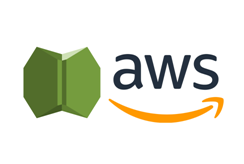 AWS Shield is a managed DDoS (Distributed Denial of Service) security service for Amazon Web Services applications. A Distributed Denial-of-Service (DDOS) attack is a malicious effort to interrupt regular traffic by flooding a website with a large volume of fake traffic. AWS Shield is available into two categories: Standard and Advanced.
AWS Shield is a managed DDoS (Distributed Denial of Service) security service for Amazon Web Services applications. A Distributed Denial-of-Service (DDOS) attack is a malicious effort to interrupt regular traffic by flooding a website with a large volume of fake traffic. AWS Shield is available into two categories: Standard and Advanced.
Since AWS Shield-standard is automatically available on all AWS services, you can use it at no extra cost. The AWS Shield standard protects your website or applications from the most popular DDoS attacks and gives you access to tools and best practices for building a DDoS-resistant architecture.
The annual expense of the AWS Shield Advanced is $3000 USD. It can be used to provide additional security against larger and more advanced threats, as well as insight into attacks and access to DDoS experts 24 hours a day, seven days a week for complex situations. Only Amazon Route 53, Amazon CloudFront, Elastic Load Balancing, AWS Global Accelerator, and Elastic IP (Amazon Elastic Compute Cloud and Network Load Balancer) are supported.
AWS Shield Standard is definitely the best option if you have technical experience and want complete control over monitoring and mitigating layer 7 attacks. However, if your company or industry is prone to DDoS attacks, or if you choose to delegate the majority of DDoS security and mitigation to AWS for layer 3, layer 4, and layer 7 attacks, AWS Shield Advanced might be a better choice.
3. AWS Inspector: 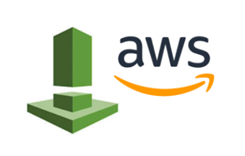 AWS Inspector is a professionally controlled and automated security evaluation service that helps AWS customers improve the security and compliance of their applications. It’s used to scan the servers for common vulnerabilities against the CVE database or a security baseline you may have in your account. It gives you an alternative of selecting a rules package and applying it to your instances. AWS Inspector is a service that provides security assessment using tags and agents.
AWS Inspector is a professionally controlled and automated security evaluation service that helps AWS customers improve the security and compliance of their applications. It’s used to scan the servers for common vulnerabilities against the CVE database or a security baseline you may have in your account. It gives you an alternative of selecting a rules package and applying it to your instances. AWS Inspector is a service that provides security assessment using tags and agents.
On the basis of various parameters such as OS, environment, and so on, instances or resources can be categorized as tags. The following are some of the most common rule packages:
- CIS Benchmarks
- CVE
- Runtime Behaviour Analysis
- Best Practices
Aside from these, you can build custom packages to meet your specific needs. You can also mix and match the various packages available. The next thing you need to do after you have chosen the package and identified the resources is to set a schedule for scanning. You can make it once a day, three times a day, or on a specific date. The AWS Inspector creates reports based on the results and displays them in a small dashboard so that it is more convenient for you to take an action or present it further. It gives you a report on how safe your application is. As a result, AWS Inspector enables you to ensure the security of your account and keep it in good working order.
4. Amazon GuardDuty: 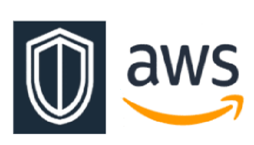 Amazon GuardDuty is a cloud-scale threat monitoring tool that is intelligent and controlled. It allows you to keep track and secure your AWS accounts and workloads at all times. GuardDuty protects your accounts and workloads using Machine Learning, Anomaly Detection, and Integrated Threat Intelligence from various AWS data sources in only a few clicks. It provides actionable detection so you can respond faster by sending you comprehensive notifications that help you prioritize and remediate threats. It’s easy to set up and use, with no software to install or maintain and no chance of your account being harmed.
Amazon GuardDuty is a cloud-scale threat monitoring tool that is intelligent and controlled. It allows you to keep track and secure your AWS accounts and workloads at all times. GuardDuty protects your accounts and workloads using Machine Learning, Anomaly Detection, and Integrated Threat Intelligence from various AWS data sources in only a few clicks. It provides actionable detection so you can respond faster by sending you comprehensive notifications that help you prioritize and remediate threats. It’s easy to set up and use, with no software to install or maintain and no chance of your account being harmed.
Amazon GuardDuty is built for the cloud and scales to fit your needs, no matter how big or small you are. It also has multi-account support, so you can handle all of your AWS accounts from a centralized security account. Amazon GuardDuty follows a pay-as-you-go pricing model and there are no extra license fees or up-front expenses. AWS CloudWatch Events are supported by GuardDuty, allowing you to send updates to your existing event management or workflow framework. With Amazon GuardDuty, constantly monitoring and protecting your AWS resources and accounts has never been simpler, smarter, or more cost-effective.
5. AWS Key Management Service (KMS): 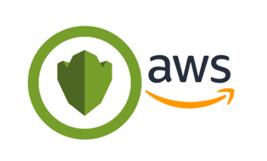 AWS Key Management Service (KMS) is a completely managed service that allows you to control cryptographic keys using the AWS Console, AWS SDK, or CLI. It serves as a single point of control for creating and managing keys, as well as controlling the use of encryption in a variety of AWS services and applications. Outside of the AWS region in which they were created, KMS keys are never published. AWS KMS and AWS CloudTrail work together to provide audited access. Cloud Trail logs of all major uses are accessible for regulatory and compliance purposes. AWS KMS is a safe and dependable service that makes use of hardware security modules.
AWS Key Management Service (KMS) is a completely managed service that allows you to control cryptographic keys using the AWS Console, AWS SDK, or CLI. It serves as a single point of control for creating and managing keys, as well as controlling the use of encryption in a variety of AWS services and applications. Outside of the AWS region in which they were created, KMS keys are never published. AWS KMS and AWS CloudTrail work together to provide audited access. Cloud Trail logs of all major uses are accessible for regulatory and compliance purposes. AWS KMS is a safe and dependable service that makes use of hardware security modules.
KMS is an AWS-managed service that makes it simple to generate and manage encryption keys. It uses symmetric encryption, which ensures that the encryption and decryption keys are the same. KMS is the best choice for you if you want an extra layer of protection when your data is at rest. Almost all AWS offerings are integrated with Amazon KMS.
AWS Security Speciality with InfosecTrain
Any company’s security is unquestionably a top priority. The AWS Certified Security – Specialty Training (SCS-C01) from InfosecTrain is a good choice if you want to obtain technical expertise and an in-depth understanding of Cloud security. With our well-read and highly qualified coaches, we are one of the leading training providers. This training course will teach you the fundamentals of AWS Cloud Security and provide you with a thorough understanding of the platform. This credential will be worth every penny and minute you put into it.







 1800-843-7890 (India)
1800-843-7890 (India) 